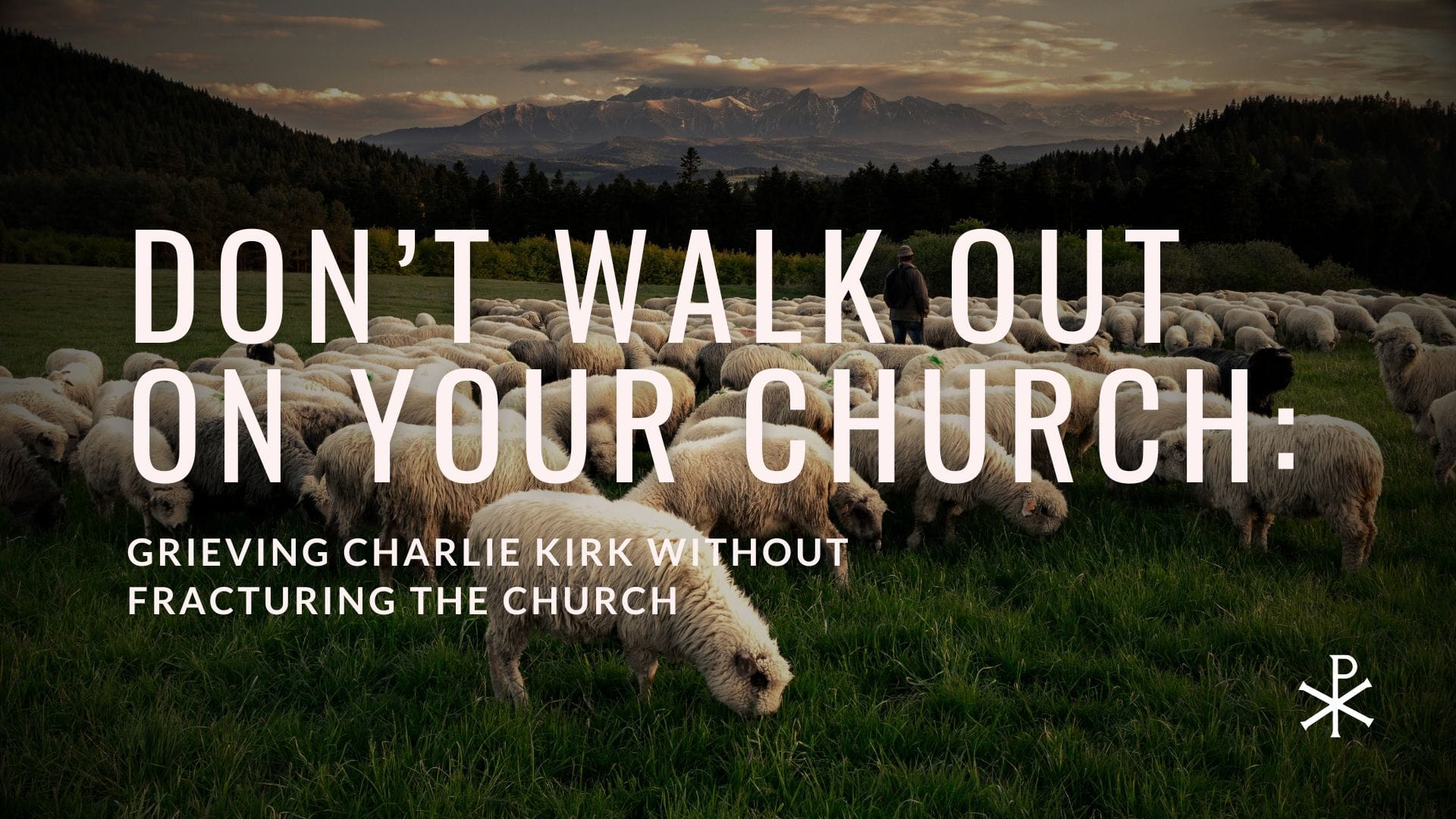Don’t Walk Out on Your Church: Grieving Charlie Kirk Without Fracturing the Church
A biblical reflection on Charlie Kirk’s assassination, urging Christians to grieve, pray, and guard church unity around Christ rather than headlines.

The assassination of Charlie Kirk was a grievous tragedy. However you felt about his politics or public persona, he was a man made in the image of God. He professed the name of Christ. He leaves behind a wife and family. To take his life was evil, and we should all grieve that such blood has been shed in our land.
But grief must not turn into reckless counsel. In recent days, voices online have urged Christians to walk out of their churches if their pastor did not mention this event from the pulpit. That advice is not only unwise—it is contrary to Scripture. “I appeal to you, brothers, by the name of our Lord Jesus Christ, that all of you agree, and that there be no divisions among you” (1 Cor. 1:10). “Watch out for those who cause divisions and create obstacles contrary to the doctrine you have been taught; avoid them” (Rom. 16:17).
The true measure of a faithful church is not whether a pastor echoes the headlines—important as those moments may be—but whether Christ and his gospel remain central.
Pastoral Burdens
Yes, pastors must acknowledge the real sorrows of the world, and most do—through prayer, pastoral conversation, writing, teaching, or preaching that lifts our eyes to eternity. In our service this past Sunday, we named Kirk’s murder, a school shooting, and the loss of beloved saints in our fellowship, then prayed for all who were affected before entering into worship. Balancing such moments is never simple. Pastors must help their people grieve honestly, yet without letting the tragedies of the week displace the greater call to proclaim Christ crucified and risen.
Faithful pastors also respond in many ways beyond the Sunday pulpit: by counseling grieving families, leading prayer gatherings, writing thoughtful reflections, and addressing current events in settings where dialogue is possible. Sunday worship, focused on God’s glory and gospel proclamation, is one piece of a much larger pastoral ministry.
Dialogue, Not Division
The irony in this foolish counsel is that some who say they grieve Charlie Kirk are now urging believers to walk away from their churches, and without so much as a conversation with their pastors. Yet Kirk himself insisted on dialogue. He was often sharp in debate, but he championed open exchange. To walk away from a gospel-preaching church without conversation betrays the very principle he worked so hard to promote.
And even if a pastor or a church falters in how a tragedy is handled, the answer is not to leave but to seek correction in love. None of us shepherd perfectly, and none of us respond flawlessly in moments of crisis. But Scripture calls us to bear with one another, to admonish and encourage, not to abandon at the first sign of weakness (Col. 3:12–14; 1 Thess. 5:14). A humble conversation will accomplish far more good than a hasty exit.
Guarding What Christ Loves
Christ shed his blood for the church. To abandon it lightly, or to sow division over a pastor’s imperfect handling of the news, is to despise what he loves. Scripture warns us plainly: “As for a person who stirs up division, after warning him once and then twice, have nothing more to do with him” (Titus 3:10). Better to bear with a shepherd’s limitations than to become the kind of person the Bible itself commands the church to avoid.
So let us mourn this evil act with honesty. Let us pray for Kirk’s wife, children, and family, and seek justice through proper channels. Let us pray for the shooter and his family, for law enforcement officers, for first responders, and for all who witnessed this horror. And let us remember: the unity of the church has endured storms far greater than disagreements over pastoral responses to tragedy.
Our unity is not built on perfect pastors or flawless commentary from the pulpit but on the finished work of Christ. He himself is our peace. And he is enough.
